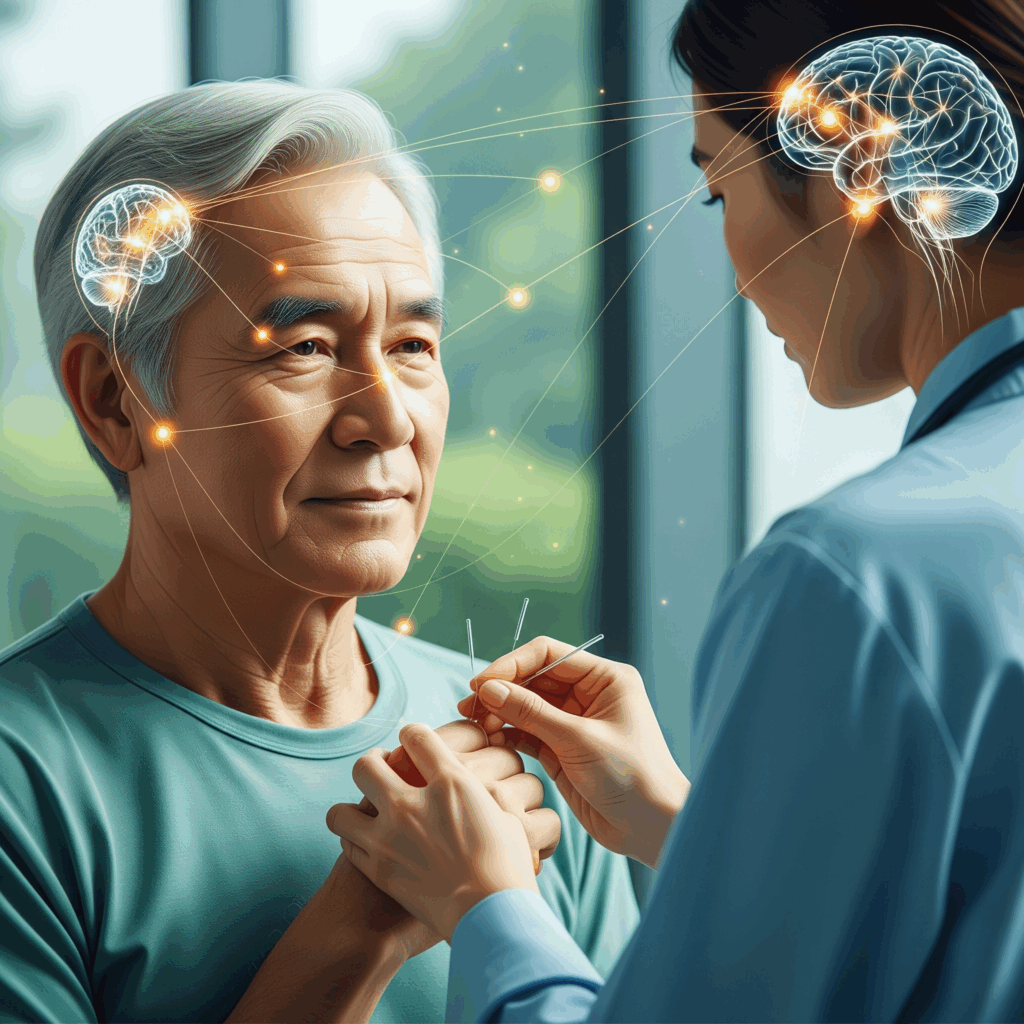A Complementary Approach to Symptom Relief
Parkinson’s disease (PD) is a complex neurodegenerative disorder primarily affecting motor function, but also bringing a host of non-motor symptoms that can significantly impact quality of life. While conventional medicine offers various treatments, many individuals seek complementary therapies to further alleviate their symptoms. Among these, acupuncture stands out as a promising area of interest, with growing scientific evidence suggesting its potential benefits.
So, how might this ancient practice help in the context of a modern neurological condition?
Understanding Acupuncture’s Role in Parkinson’s
Acupuncture, a key component of Traditional Chinese Medicine (TCM), involves inserting thin needles into specific points on the body. From a Western perspective, research suggests that acupuncture may exert its effects through several mechanisms relevant to PD:
- Neurotransmitter Modulation: Studies indicate that acupuncture can influence the release of neurotransmitters such as dopamine, serotonin, and norepinephrine. Given that PD is characterized by a loss of dopamine-producing neurons, any therapy that can help regulate these crucial brain chemicals is of interest.
- Anti-inflammatory Effects: Chronic inflammation is increasingly recognized as a contributing factor in neurodegenerative diseases. Acupuncture has been shown to reduce inflammatory markers, potentially offering a neuroprotective effect.
- Pain Relief and Muscle Relaxation: Many individuals with PD experience stiffness, rigidity, and pain. Acupuncture’s well-documented ability to alleviate pain and relax muscles can be particularly beneficial for these motor symptoms.
- Improved Non-Motor Symptoms: Beyond motor challenges, PD can lead to sleep disturbances, anxiety, depression, and gastrointestinal issues. Emerging research suggests acupuncture may help improve these often-overlooked symptoms, contributing to overall well-being.
What Does the Science Say?
While more large-scale, randomized controlled trials are needed, the existing scientific literature offers encouraging insights:
- Several systematic reviews and meta-analyses have explored the efficacy of acupuncture for PD symptoms. These studies often highlight improvements in motor symptoms like tremor, rigidity, and bradykinesia (slowness of movement), as well as non-motor symptoms such as sleep quality, mood, and fatigue.
- Functional Magnetic Resonance Imaging (fMRI) studies are beginning to shed light on the brain regions activated by acupuncture in PD patients, providing objective evidence of its neurological effects. These studies often show changes in areas related to motor control and emotional regulation.
- It’s crucial to understand that acupuncture is not a cure for Parkinson’s disease. Instead, it’s considered a complementary therapy designed to work alongside conventional treatments, helping to manage symptoms and improve quality of life.

Who Can Benefit?
Acupuncture may be a suitable option for individuals with Parkinson’s disease who are looking to:
- Manage motor symptoms: Reduce tremor, rigidity, and improve balance.
- Alleviate non-motor symptoms: Address issues like sleep disturbances, anxiety, depression, constipation, and pain.
- Improve overall quality of life: Enhance daily functioning and well-being.
It’s always recommended to consult with your neurologist before starting any new complementary therapy to ensure it’s appropriate for your specific condition and treatment plan. A qualified and experienced acupuncturist who has knowledge of neurological conditions is also essential.

What to Expect During an Acupuncture Session
A typical acupuncture session involves lying comfortably while fine, sterile needles are inserted into specific points. The needles are usually left in place for 20-30 minutes. Most people report little to no pain during insertion, and many find the experience deeply relaxing. A course of treatment usually involves multiple sessions, with the frequency and duration tailored to the individual’s needs.
Conclusion
While not a standalone treatment, acupuncture offers a promising complementary avenue for individuals living with Parkinson’s disease. By potentially modulating neurotransmitters, reducing inflammation, and alleviating various motor and non-motor symptoms, it can play a valuable role in a holistic management strategy, aiming to improve both physical comfort and overall quality of life. As research continues to advance, we will undoubtedly gain an even deeper understanding of this ancient therapy’s modern applications.


Leave a Reply